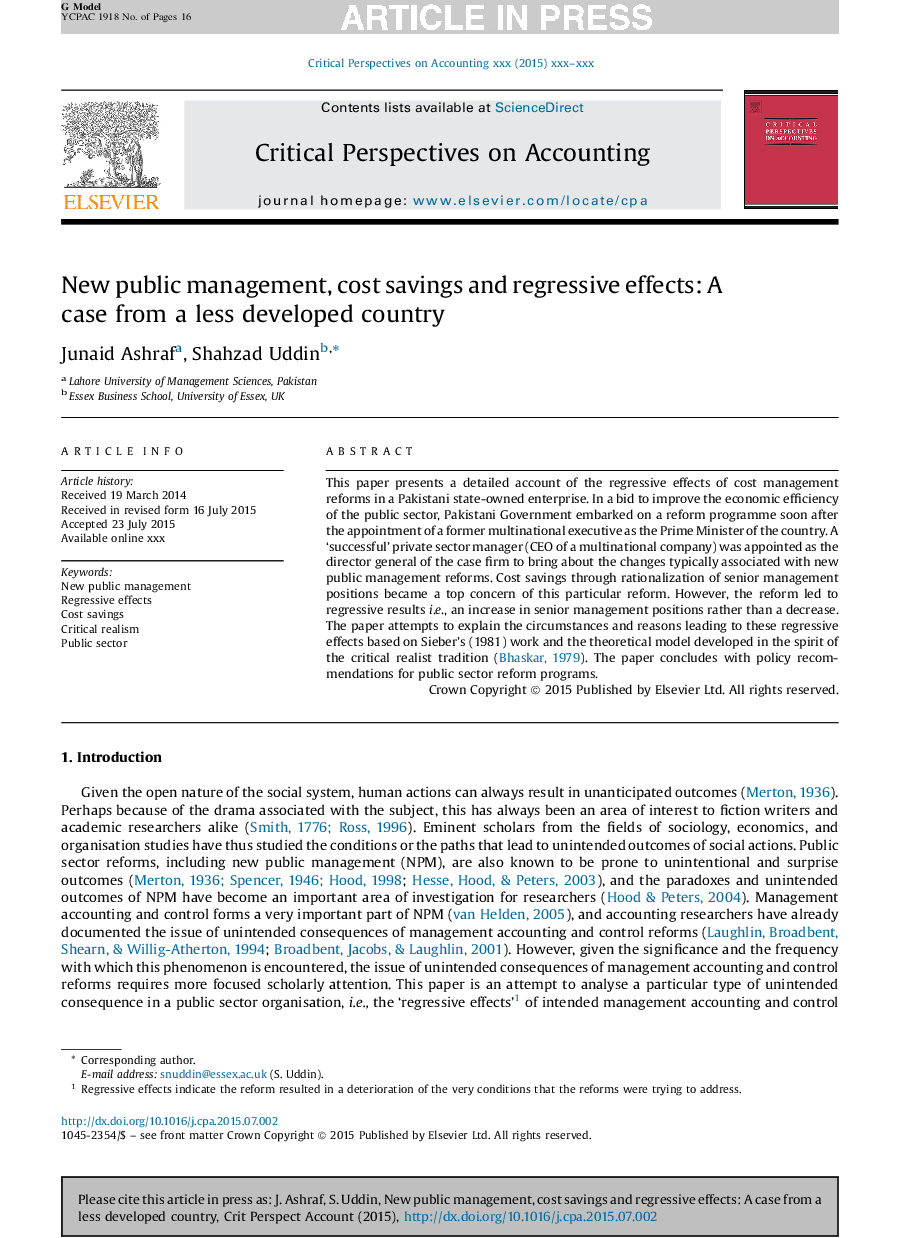| Article ID | Journal | Published Year | Pages | File Type |
|---|---|---|---|---|
| 5106907 | Critical Perspectives on Accounting | 2016 | 16 Pages |
Abstract
This paper presents a detailed account of the regressive effects of cost management reforms in a Pakistani state-owned enterprise. In a bid to improve the economic efficiency of the public sector, Pakistani Government embarked on a reform programme soon after the appointment of a former multinational executive as the Prime Minister of the country. A 'successful' private sector manager (CEO of a multinational company) was appointed as the director general of the case firm to bring about the changes typically associated with new public management reforms. Cost savings through rationalization of senior management positions became a top concern of this particular reform. However, the reform led to regressive results i.e., an increase in senior management positions rather than a decrease. The paper attempts to explain the circumstances and reasons leading to these regressive effects based on Sieber's (1981) work and the theoretical model developed in the spirit of the critical realist tradition (Bhaskar, 1979). The paper concludes with policy recommendations for public sector reform programs.
Related Topics
Social Sciences and Humanities
Business, Management and Accounting
Accounting
Authors
Junaid Ashraf, Shahzad Uddin,
